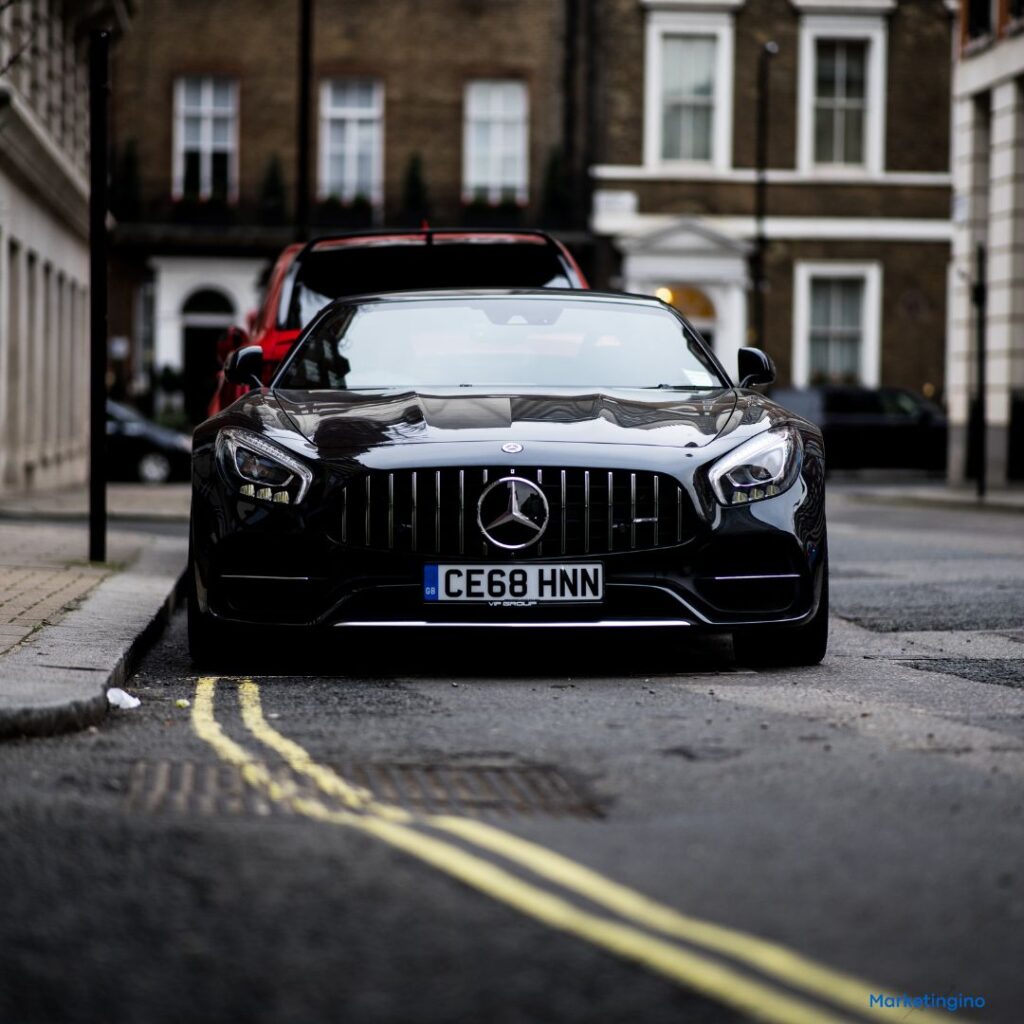Mercedes-Benz is synonymous with luxury, performance, and innovation. As one of the leading automotive brands globally, Mercedes has maintained its prestigious image and market share through a well-orchestrated marketing strategy. Here’s a detailed look at how Mercedes markets its brand and continues to captivate customers worldwide.
Understanding Mercedes’ Marketing Strategy
Mercedes’ marketing strategy revolves around luxury positioning, innovative technology, customer engagement, and global reach. The core elements of Mercedes’ marketing strategy include brand positioning, target market identification, product differentiation, and integrated marketing communications.
Brand Positioning
Mercedes positions itself as a luxury automotive brand that combines performance, elegance, and cutting-edge technology. The brand is associated with high quality, reliability, and status, appealing to affluent customers who value sophistication and innovation.
Key Tactics:
- Luxury Imagery: Mercedes’ advertisements and promotions consistently use high-end visuals and themes that emphasize luxury and exclusivity.
- Prestigious Taglines: Slogans like “The Best or Nothing” and “Engineered like no other car in the world” reinforce the brand’s commitment to excellence.
Target Market Identification
Mercedes targets affluent individuals, including professionals, business executives, and car enthusiasts who appreciate luxury, performance, and advanced technology. The company tailors its messaging to resonate with this demographic, highlighting the status and prestige associated with owning a Mercedes.
Key Tactics:
- Market Segmentation: Mercedes uses demographic, psychographic, and geographic segmentation to identify and target its core customer base.
- Customer Insights: Continuous market research helps Mercedes understand the preferences, behaviors, and aspirations of its target market.
Product Differentiation
Mercedes differentiates itself through its commitment to innovation, quality, and performance. The brand offers a wide range of vehicles, from luxury sedans to high-performance sports cars and eco-friendly electric vehicles.
Key Tactics:
- Innovation: Investing heavily in research and development to introduce cutting-edge technology and features in its vehicles.
- Quality Assurance: Ensuring the highest standards of quality in design, engineering, and manufacturing.
- Diverse Product Line: Offering a broad portfolio of vehicles to cater to different customer preferences and needs.
Integrated Marketing Communications
Mercedes employs an integrated marketing communications strategy to ensure consistent messaging across all channels, including print, television, digital media, and in-person events. This approach helps create a cohesive brand experience for customers.
Key Tactics:
- Digital Marketing: Active engagement on social media platforms, targeted online advertising, and engaging content marketing.
- Traditional Advertising: High-profile television commercials, print ads in premium magazines, and outdoor advertising in strategic locations.
- Event Marketing: Hosting exclusive events, auto shows, and test drive experiences to engage directly with potential customers.
Celebrity Endorsements and Sponsorships
Mercedes partners with celebrities, influencers, and sports teams to enhance its brand image and reach a wider audience. These endorsements help to create buzz and build brand credibility.
Key Tactics:
- Celebrity Partnerships: Collaborations with high-profile personalities from various fields to promote the brand and its vehicles.
- Sports Sponsorships: Sponsoring major sporting events and teams, such as Formula 1 racing, to align the brand with performance and excitement.
Customer Engagement and Experience
Mercedes focuses on providing an exceptional customer experience, from the initial interaction to after-sales service. The company aims to build long-term relationships with its customers by exceeding their expectations at every touchpoint.
Key Tactics:
- Personalized Communication: Using CRM systems to send personalized messages, offers, and updates to customers.
- Customer Service Excellence: Providing top-notch customer service and support through dealerships and service centers.
- Loyalty Programs: Offering exclusive benefits and rewards to loyal customers through programs like Mercedes me.
Sustainability and Innovation
Mercedes is committed to sustainability and innovation, focusing on developing eco-friendly vehicles and reducing its environmental impact. The brand emphasizes its efforts to lead the automotive industry towards a greener future.
Key Tactics:
- Electric Vehicles: Expanding the range of electric and hybrid vehicles under the EQ brand.
- Sustainable Practices: Implementing sustainable practices in manufacturing, sourcing, and operations.
- Future Mobility: Investing in autonomous driving technology, connectivity, and smart mobility solutions.
Global Reach and Localization
Mercedes has a strong global presence, with a network of dealerships and service centers in over 100 countries. The brand adapts its marketing strategies to local markets while maintaining a consistent global image.
Key Tactics:
- Localized Campaigns: Tailoring marketing campaigns to reflect local cultures, preferences, and trends.
- Global Consistency: Ensuring that the core brand values and messaging remain consistent across all markets.
- Strategic Partnerships: Collaborating with local partners to enhance market penetration and customer reach.
Mercedes’ marketing strategy is a blend of luxury positioning, innovation, customer engagement, and global reach. By understanding its target market, differentiating its products, and leveraging integrated marketing communications, Mercedes has built a strong and loyal customer base. As the automotive industry evolves, Mercedes’ commitment to quality, sustainability, and innovation will ensure its continued success and leadership in the luxury car market.


